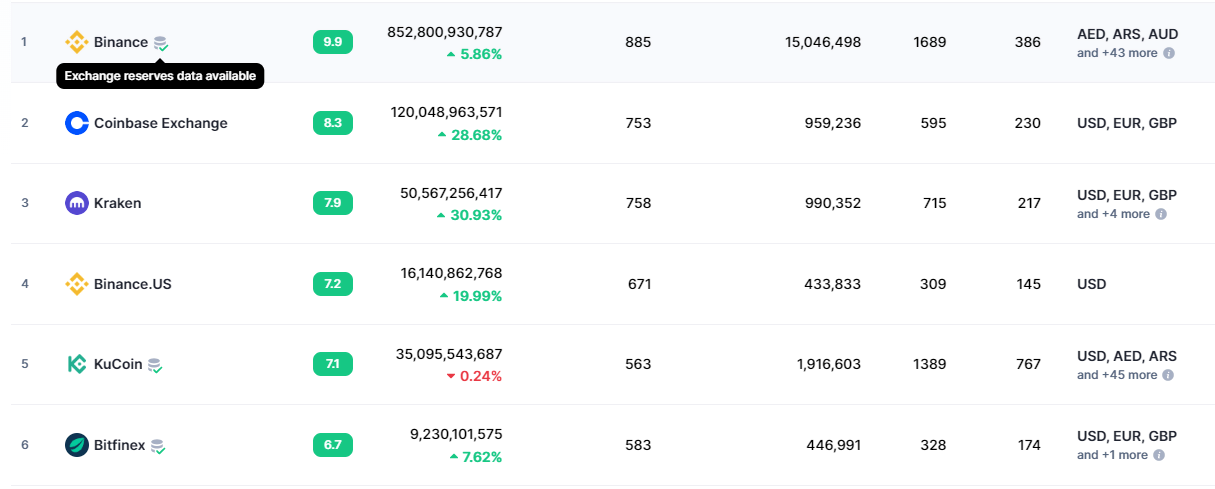Subscribe to our Telegram channel

CoinMarketCap rating added a reliability indicator for cryptocurrency exchanges to its website
CoinMarketCap, one of the world’s most popular digital asset price tracking sites, has added the ability to view cryptocurrency exchanges' reserves, so that every user can check how much crypto reserves the platform has and, accordingly, decide whether to keep their funds there.
As FUD is spreading in the crypto community due to the FTX bankruptcy and more and more investors prefer to store cryptocurrency on cold wallets, exchanges are reporting on how much money is stored on their accounts. This way, platform representatives hope to retain customers. KuCoin exchange, which had been rumored to be insolvent, was one of the first to disclose its reserves. On CoinMarketCap’s website, users can check the exchange’s reserves by clicking on the corresponding icon. The feature is currently available with Binance, KuCoin, Bitfinex, OKX, Bybit, Crypto.com, and Huobi.
The world’s largest exchange Binance, which acquired CoinMarketCap back in 2020, also reported on its crypto stocks. As of November 10, the market value of all digital assets held by Binance was about $ 71 billion. «This list includes only the main tokens in the BTC, ETH, BSC, BNB, and TRX networks. This is not a complete set of data, which will be provided later in a full audited report. Also, as part of Binance’s ongoing commitment to transparency and building trust in the ecosystem, we are sharing details of our hot and cold wallet addresses,» the exchange’s representatives wrote on the official Binance website.
During an AMA session on Twitter, Binance CEO Чанпен Чжао" href="https://noworries.media/biography/chanpen-chzhao/" data-bio-id="3681">Changpeng Zhao said that the exchange is working on the implementation of a new Proof-of-Reserves protocol developed by Ethereum co-founder Vitalik Buterin. The Proof-of-Reserves protocol has been around for several years. It uses the Merkle Tree algorithm not only to combine a large amount of data into a single hash, but also to effectively verify the integrity of the data set. Changpeng Zhao has promised to ensure «full transparency» by introducing the Merkle Tree mechanism to Binance, and he has also called on other cryptocurrency exchanges to do the same.


